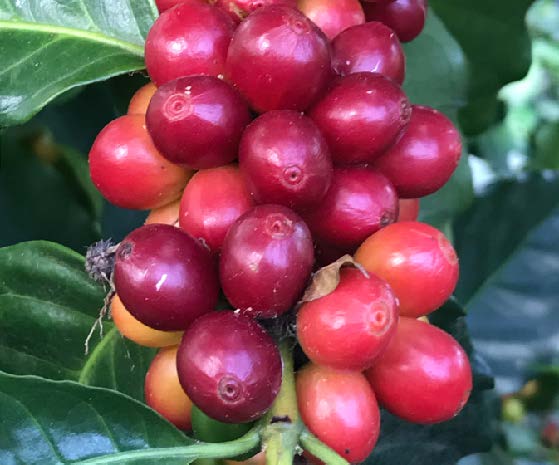Coffee from Siberia
Fabio Morán and Epifanio Silva began growing coffee in the Apaneca-Ilamatepec mountain range in El Salvador in 1870. The tradition has been passed down from generation to generation and inspired the establishment of the business known today as “Sicafe.” They named their farm La Siberia for its hostile weather conditions and difficult accessibility. The mountainous region where they still grow coffee under the Sicafe brand, encompasses a biosphere reserve extending across 53,000 hectares: including forests, lava flows, and lagoons. The region is home to a diverse set of flora and fauna, out of which 14 plant and 23 bird species are endangered.
The family maintains its entrepreneurial spirit by managing six coffee farms spread across the Apaneca-Ilamatepec region, running a wet and dry coffee mill named San Pedro, and developing its own brand of estate coffee, Entre Cerros. Their mill can process around 150 tons of coffee per season and provides milling and trading services to small-holder farmers. The Silvas’ farms are mainly planted with Bourbon and Pacamara coffee varieties and are situated between 1,400 and 1,720 meters above sea level, allowing Sicafe to produce high-quality shade-grown coffee. To date, the company has won nine national andinternational coffee awards.
Responsibly Produced Coffee
Throughout the entire production process the Silva family seeks to minimize the environmental impact of their company by using natural resources sustainably and contributing to the preservation of El Salvador’s biodiversity. As part of their sustainable farming practices, the Silva family grows coffee under shade instead of clearing up valuable trees to make space for the farm. They also plant coffee varieties that can withstand the effects of climate change.
In addition, they only use rainwater to process coffee, made possible by a water reservoir the family has built and expanded over the years. The company also applies different techniques to make its wastewater from the milling process as safe as possible for the environment by using natural fertilizers and removing contaminants. The purified wastewater is then reused helping to achieve a 50% reduction in their overall water consumption.
In addition to the sustainable use of water, Sicafe also uses other ecofriendly methods, such as improved processes for removing the outer cherry husks and sugars for both dry and wet coffee.
Furthermore, the company is committed to reducing the use of chemical fertilizers by using worms, vermiculture, to create compost. They also treat coffee leaf rust with ecological fungicides instead of conventional chemicals.
Not only does the environment thrive from the farming practices of Sicafe, but the local community benefits from Sicafe’s social engagements as well. During the harvest and processing seasons, the firm employs around 450 local workers who receive better salaries than the average worker in El Salvador, as well as free medical assistance. The company also offers a food aid program for senior citizens with scarce resources. Sicafe’s sustainable business model proves that it is possible to adapt to changing climate conditions, caring for our ecological and social environment, and still lead a flourishing business.

Share: